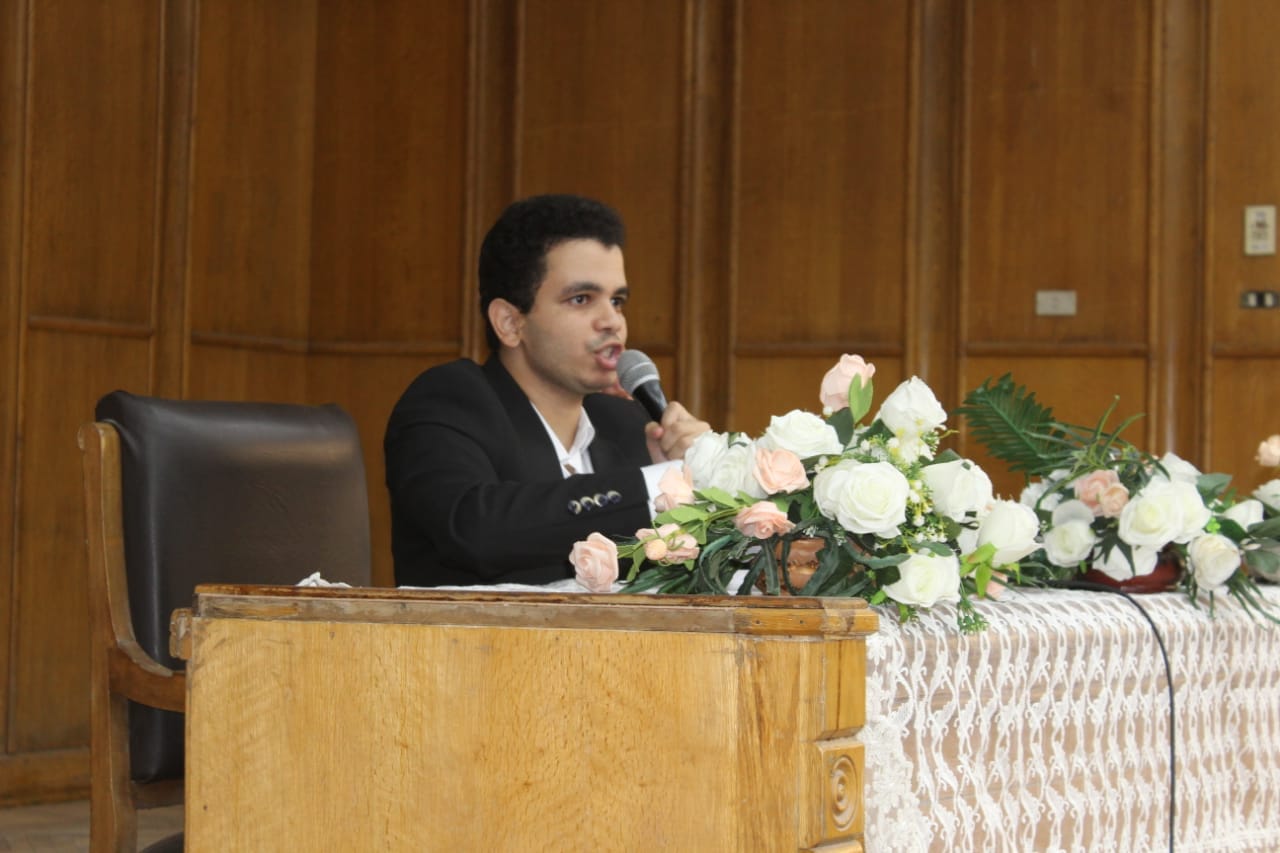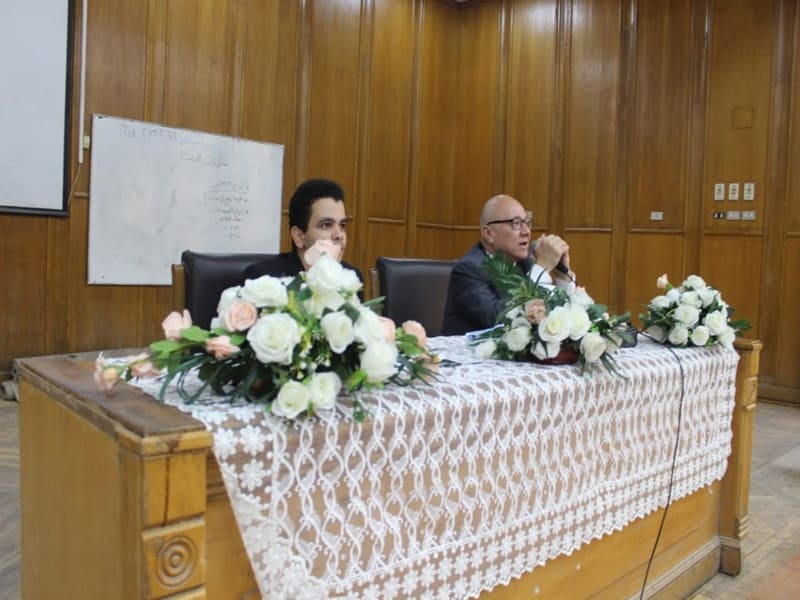"Humans and Algorithms: How Social Media Algorithms Affect Our Daily Lives" A symposium at the Faculty of Arts
The Community Service and Environmental Development Sector at the Faculty of Arts, at Ain Shams University, organized a symposium entitled "Humans and Algorithms: How Social Media Algorithms Affect Our Daily Lives" under the auspices of Prof. Mohamed Diaa Zain El-Abedeen, President of the University, Prof. Ghada Farouk, Vice President for Community Service and Environmental Development Affairs, Prof. Hanan Kamel, Dean of the Faculty, and under the supervision of Prof. Hanan Salem, Vice Dean of the Faculty for Community Service and Environmental Development Affairs. The symposium was moderated by Prof. Saleh Soliman, Professor of Sociology at the Faculty, and lectured by Dr. Mahmoud Mohamed Farah, a researcher in digital sociology.
Prof. Saleh Suleiman, Professor of Sociology, began his speech by welcoming the guests, noting that the symposium highlights the significant role that algorithms play in shaping the user experience on social media platforms such as (Facebook, Instagram, YouTube, and TikTok), and delves into the radical impact that algorithms have on the human experience in the digital space. The discussion includes an exploration of the complex relationship between users and the algorithms that manage social media platforms, and these effects extend to psychological, social, and economic aspects.

Dr. Mahmoud Farah, a researcher in digital sociology, reviewed several topics of the symposium, including understanding algorithms and how they work as systems based on artificial intelligence and data analysis, which are used to organize and customize content based on users’ preferences and previous behavior. Algorithms are also used to enhance user interaction by highlighting content that achieves the highest level of personal interaction. However, they are not just neutral tools; they are programmed to dynamically and continuously favor a certain type of content, in addition to their impact on habits and behaviors.
Dr. Mahmoud Farah also pointed out that algorithms influence users’ behavior by flooding them with similar content that supports their current interests, which can trap them in a thought “bubble.” This is known as an “echo chamber,” where pre-existing beliefs are reinforced and opposing viewpoints are not exposed, which can foster social division.
He also touched on the negative impact of algorithms on mental health, as the constant focus on interacting with popular posts or controversial content can lead to increased feelings of anxiety, depression, and low self-confidence, especially among younger age groups. The issue of social media addiction was also discussed, as algorithms are designed to push users to stay for long periods.
Dr. Farah reviewed the effects of information bubbles and echo chambers, “filter bubbles” and “echo chambers” produced by algorithms. These bubbles lead to the reinforcement of personal opinions and the ignoring of opposing viewpoints, as algorithms cause content to be customized to suit users’ previous behavior, which reinforces preconceptions and reduces exposure to opposing views, which deepens social divisions and affects democratic dialogue. The relationship between algorithms and the collection of personal data was also highlighted, as companies analyze user behavior and use this information for marketing purposes or sell it to third parties. Questions are raised about the ethics of this use and how to protect privacy in the age of data tracking.
On the economic side, the symposium reviewed how social media platforms rely on algorithms to increase revenues through targeted advertising, as huge amounts of personal data are collected and analyzed to create accurate profiles about users, which allows companies to target personalized ads with precision. In addition to the negative effects, some of the potential benefits of algorithms were discussed. Algorithms contribute to improving the user experience by providing personalized content, helping companies reach the target audience, and accelerating access to information of personal or professional importance.
The symposium concluded with a discussion of the possible future of the relationship between humans and algorithms, raising the question of how social media platforms and their algorithms can be developed to be more transparent and fair, and how users and communities can demand improvements that preserve human values and protect against negative impacts.
Dr. Mahmoud Farah explained some recommendations and guidelines that should be followed when using social media sites, including their algorithms, whether for users or companies. Companies should be more clear about how their algorithms work and what data they use, and encourage companies to take greater responsibility for the content their algorithms promote. Users should also be empowered with tools that allow them to control the types of content that appear to them, and call for regulations that govern the use of data and limit excessive commercial exploitation.
In addition to enhancing digital awareness among individuals on how to deal with social media algorithms, and supporting educational programs on critical thinking and the safe use of technology.
The symposium emphasized the need to think about the future we want to see between humans and algorithms. Participants are invited to explore new ways to make technology more compatible with our human needs, while preserving the values of transparency, privacy, and justice in the digital age.


.svg)

